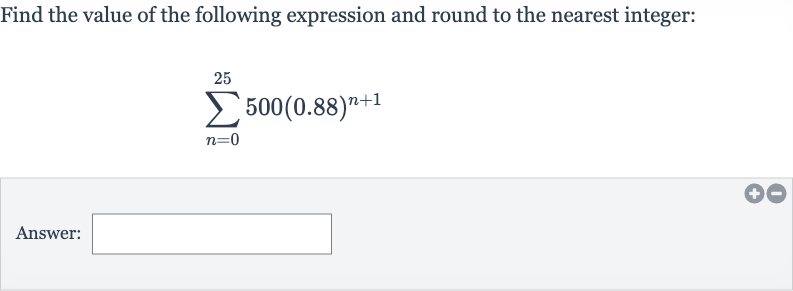Full solution
Q. Find the value of the following expression and round to the nearest integer:Answer:
- Identify Geometric Series: The given expression is a geometric series, where the first term is , the common ratio is , and the number of terms is (since we start from and go up to ). The sum of a finite geometric series can be calculated using the formula , where is the sum of the series.
- Calculate First Term: First, calculate the first term of the series, which is .
- Calculate Common Ratio: Next, calculate the common ratio raised to the power of the number of terms, which is . This calculation can be done using a calculator.
- Apply Sum Formula: Now, plug the values of , , and into the sum formula for a geometric series.Again, use a calculator to compute the exact value.
- Round Final Answer: After calculating the exact value of the sum, round the result to the nearest integer to get the final answer.

